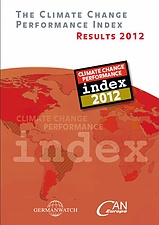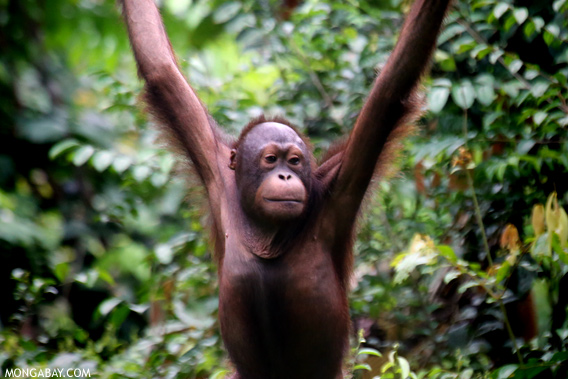Siemens Energy has developed a free online game that challenges the user to design a sustainable energy system for a city. The simulation game Power Matrix aims to generate an understanding of the mechanisms and rules of the energy market and to provide insights into the interaction between different power generation types and power grids. Check out the game...
Όμορφος Κόσμος...
Environmental news from around the world, gathered (mainly) for informing my students of ongoing developments. I am NOT the creator/copy-right owner of any of the photos appearing in the posts: they are used solely for informative/educative and non-commercial purposes -and i consider this "fair use". Nevertheless, if you own the copyright of any of those photos/graphs/etc and you wish them removed please contact me and I would gladly do so.
About Me

- Iosif Botetzagias
- Assistant Professor of Environmental Politics and Policy, Dept. of Environment, University of the Aegean, Greece
In the News: West African lions nearing extinction
ENN, Janouary 10, 2013
The report, by conservation group LionAid, says that as few as 645 lions may now remain in the wild in western and central Africa, following a worrying decline in recent years. This decline has been mirrored across Africa, with estimates suggesting that only around 15,000 wild lions remain across the whole continent, compared to about 200,000 a few decades ago. This iconic species is now extinct in 25 African countries, and virtually extinct in another 10. Read more...
The report, by conservation group LionAid, says that as few as 645 lions may now remain in the wild in western and central Africa, following a worrying decline in recent years. This decline has been mirrored across Africa, with estimates suggesting that only around 15,000 wild lions remain across the whole continent, compared to about 200,000 a few decades ago. This iconic species is now extinct in 25 African countries, and virtually extinct in another 10. Read more...
Organic Farming Expands, Contributes to Sustainable Food Security
ENN, January 15, 2013
Despite a slight decline between 2009 and 2010, since 1999 the global land area farmed organically has expanded more than threefold to 37 million hectares, according to new research conducted by the Worldwatch Institute for its Vital Signs Online service. Regions with the largest certified organic agricultural land in 2010 were Oceania, including Australia, New Zealand, and Pacific Island nations (12.1 million hectares); Europe (10 million hectares); and Latin America (8.4 million hectares), write report authors Catherine Ward and Laura Reynolds. Read more...
Despite a slight decline between 2009 and 2010, since 1999 the global land area farmed organically has expanded more than threefold to 37 million hectares, according to new research conducted by the Worldwatch Institute for its Vital Signs Online service. Regions with the largest certified organic agricultural land in 2010 were Oceania, including Australia, New Zealand, and Pacific Island nations (12.1 million hectares); Europe (10 million hectares); and Latin America (8.4 million hectares), write report authors Catherine Ward and Laura Reynolds. Read more...
Report: Mercury in Seafood
Sources to Seafoodlooks at the pathways and consequences of mercury pollution across marine systems by drawing on findings from the C-MERC papers, scientific literature and data from a range of marine systems and coastal basins. The report examines mercury sources, pathways, and inputs for the Hudson River Estuary, San Francisco Bay, Gulf of Mexico, Long Island Sound, Chesapeake Bay, Gulf of Maine, Arctic Ocean, and the open ocean. Read more...
The Climate Change Performance Index 2012
GermanWatch & CAN Europe
The Climate Change Performance Index is an instrument supposed to enhance transparency in international climate politics. Its aim is to encourage political and social pressure on those countries which have, up to now, failed to take ambitious actions on climate protection as well as to highlight countries with best-practice climate policies. On the basis of standardised criteria, the index evaluates and compares the climate protection performance of 58 countries that are, together, responsible for more than 90 percent of global energy-related CO2emissions. 80 percent of the evaluation is based on objective indicators of emissions trend and emissions level. 20 percent of the index results are built upon national and international climate policy assessments by more than 200 experts from the respective countries. Read more...
Giant tortoises bounce back in the Galapagos
New Scientist, November 30, 2012
LONESOME GEORGE'S death
in the Galapagos Islands may have signalled the end of the Pinta
Island tortoises, but a related subspecies on a neighbouring island has been
saved from extinction. The huge success of the rescue mission suggests that
similarly endangered species may have a chance, too. Read more...
Toxic Threads-The Big Fashion Stitch-Up
 Greenpeace, November 20, 2012
Greenpeace, November 20, 2012
Greenpeace International has commissioned a new investigation that delves
even further into the hazardous chemicals used in the production of high street
fashion.
Spurred on by the success of Greenpeace's Detox Campaign,
which exposed the links between textile manufacturing facilities using toxic
chemicals and water pollution, the investigation was expanded to include 20
global fashion brands – including Armani, Levi's and
Zara – as well as more hazardous chemicals. Read more...
Borneo may lose half its orangutans to deforestation, hunting, and plantations
ENN, November 07, 2012
Borneo
will likely lose half of its orangutans if current deforestation and forest
conversion trends continue, warns a comprehensive new assessment by an
international team of researchers. The
study, published in the journal PLoS ONE, overlays orangutan distribution
with land use regulations in Malaysian and Indonesian Borneo. Borneo has
suffered high rates of deforestation, logging, and forest conversion for
industrial plantations in recent decades, endangering the world's largest
surviving populations of orangutans. Read more Read more...
Subscribe to:
Posts (Atom)





